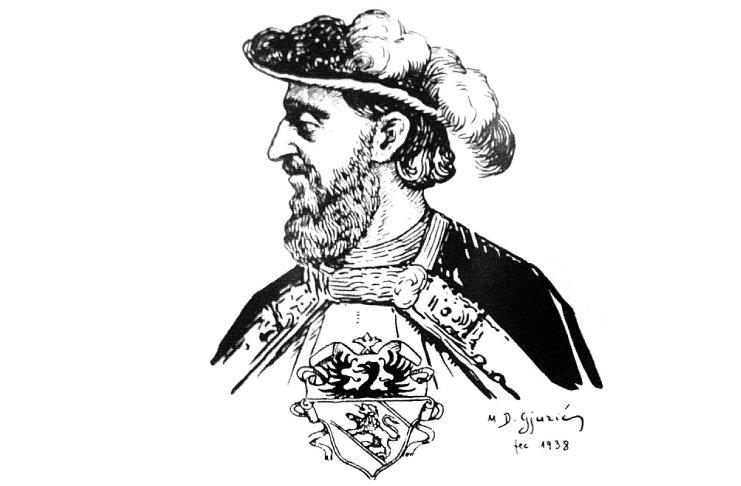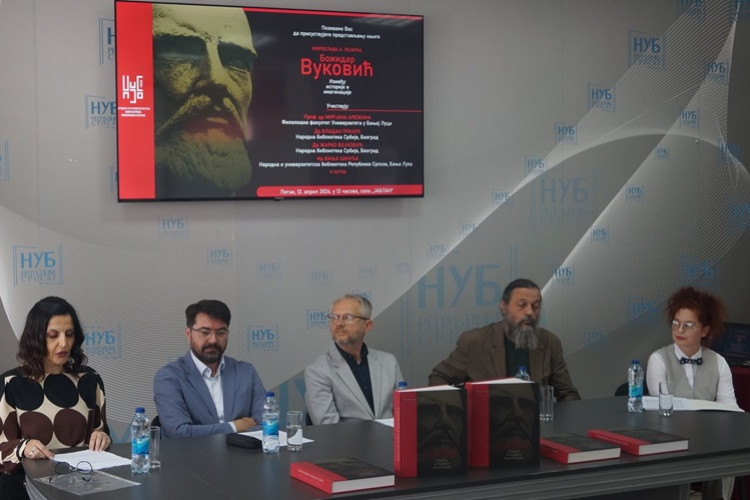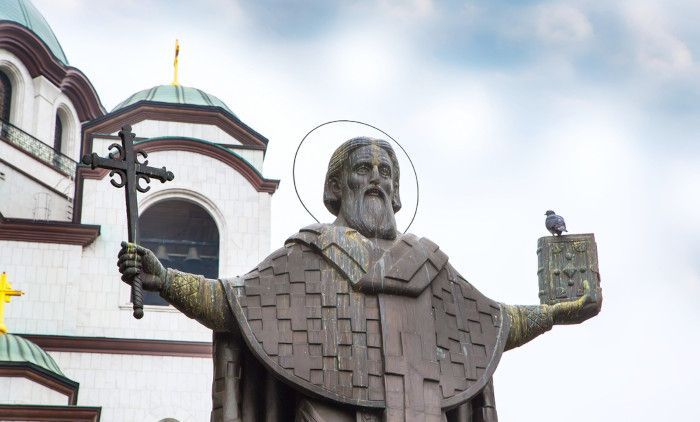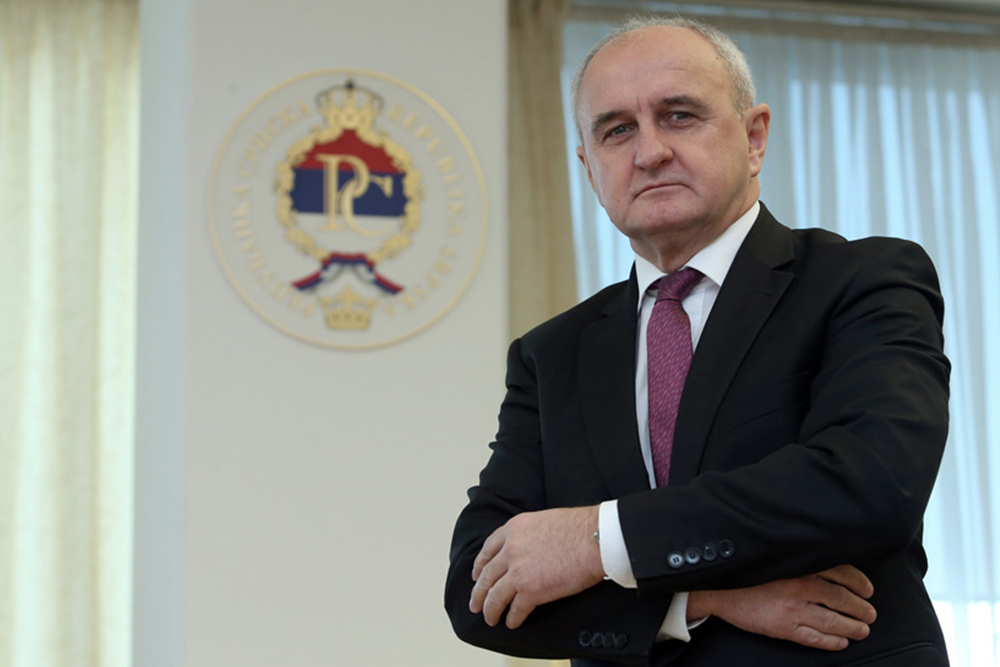At the National and University Library of Republika Srpska, the monograph “Božidar Vuković: Between History and Imagination,” edited by Miroslav A. Lazić, was presented, dedicated to the life and work of the pioneer of Serbian printing.
The book was introduced to the public by the author Dr. Miroslav A. Lazić, a research associate at the Institute for the Serb Language of the Serb Academy of Sciences and Arts (SANU); Prof. Dr. Mirjana Arežina, a full professor at the Faculty of Philology in Banja Luka; Dr. Vladan Trijić, head of the Department of Archaeography at the National Library of Serbia; Dr. Žarko Vojinović, head of the Bibliography Department at the National Library of Serbia; and Mr. Vanja Šmulja, coordinator of the Department of Library Units and Legacies at the NULRS, who discussed the motivations behind creating this substantial work dedicated to one of the giants of Serbian literacy and the custodian of literature.
Božidar Vuković, originally from Podgorica, is known in both academic and broader cultural circles primarily as the founder of the most significant Serbian printing press in Venice. In the first half of the 16th century, driven by patriotic and religious motives, he printed a number of Serb Slavic Cyrillic liturgical books.

Miroslav Lazić highlighted that Vuković’s background activities were much more complex than previously assumed, with new details of his life coming to light.
“Despite significant archival and other sources being published about him in foreign scholarly literature during the 19th and first half of the 20th centuries, the portrayal of Vuković as merely a printer, formed early in the historiography of the 19th century, had not been questioned for a long time. The reason lies primarily in the fact that it was not known that in Venice Božidar Vuković was known under the pseudonym Dionizio della Vechia. Discoveries of the testaments of Božidar Vuković and his brother Nikola, as well as numerous other diverse sources, combined with a critical approach to their interpretation, have allowed for the reconstruction of his real historical figure, separating historical facts from many later ideological and other constructions,” said Lazić.
According to the author, he arrived at a considerably more complex portrayal of Vuković as a merchant with an extensive trade network from London to Constantinople and co-owner of a commercial establishment at Rialto, Venice’s business and commercial center. He also managed the Greek Brotherhood in Venice and led an intelligence network for the Roman-German Emperor Charles V, receiving noble recognition from the imperial court for his services.
Professor Mirjana Arežina emphasized that the interdisciplinary study “Božidar Vuković: Between History and Imagination” sheds light on various aspects of Božidar Vuković’s personality.
“This interdisciplinary study is an important contribution to the research of early Serb printing. In the book, Božidar Vuković is illuminated for his most famous role, as a printer of Cyrillic books in Venice. However, other aspects of his public activities as a merchant, benefactor, administrator, intelligence agent, and initiator of liberation efforts are also presented. The author researched every subtopic related to Vuković’s life and work thoroughly, ensuring that his interpretations are reliable and his positions are archivally confirmed,” said Arežina.
Dr. Vladan Trijić mentioned the interesting and high-quality illustrative material, which enhances the understanding of the book’s content, printed in a high-quality graphic edition.
“The approach by Lazić is well-known in academic circles as a diligent researcher of certain phenomena based on all available primary sources, which he examines against a broadly set theoretical and contextual background. Since Vuković’s personality and activities have been accompanied by a devastating excess of hypotheses and a lack of reliable facts, as well as excessive glorifications and deliberate misuses for two centuries, the author has undertaken the task to for the first time compile and analyze all available historical sources about him to crystallize a more truthful image,” said Trijić.

Dr. Žarko Vojnović, bibliographic advisor and head of the Bibliography Department of the National Library of Serbia, noted that the book’s foundation is the publishing and printing activities of Božidar Vuković, but the author did not want to stay on the track set by earlier publishers. His approach is entirely different, phenomenological, as modern science demands, and additionally, the research is structured interdisciplinarily.
The book has also been presented at Ca’ Foscari University in Venice and the National Library of Serbia in Belgrade, with further promotions planned in Montenegro in Nikšić and Podgorica.
Recognition:
This monograph by Miroslav Lazićhas made a significant contribution to reconstructing Vuković’s real historical figure. Vanja Šmulja highlighted that the book’s title reveals an approach where the most significant starting points are historical sources.
“The critical approach in interpreting these sources and establishing a new, more complex, and comprehensive portrayal of Božidar Vuković has brought the author the ‘Stojan Novaković’ award for the best book published in 2023,” said Šmulja.
Source: Glas Srpske









